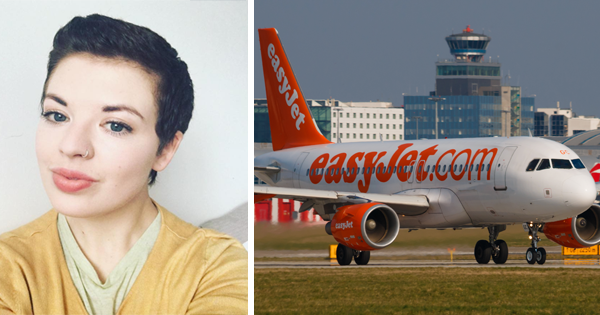Advertisement
On August 31, 2016, Helen Stephens was on her way to Zakynthos, Greece, from London for a friend’s wedding when she suffered a minor seizure.
In her account, the seizure only lasted “seconds,” and she’d been cleared by paramedics as being well enough to fly.
The airline, EasyJet, however, didn’t agree. Immediately after the incident, they asked Stephens to collect her luggage and get off the plane because they didn’t think it was safe for her to fly.
Although Stephens complied, she felt like a fool, “It wasn’t like I’d been drunk and rowdy. I had a bit of a seizure, felt a bit silly, I just needed to sit there for a minute and go back to my seat…I had to walk up the aisle and pack my books into my rucksack, and my passport and everything.”
“I felt like a naughty schoolgirl dismissed from class. I felt like I’d made a spectacle of myself.”
EasyJet argues that it was keeping Stephens’ health and wellbeing – as well as that of the other passengers onboard the plane – in mind when they asked her to get off the flight. They even provided Stephens with overnight accommodation and booked her on a flight the following day.
“Our in house [sic] medical team advise that internationally agreed upon protocol is that it is not advisable to fly within 24 hours of a convulsion without medical clearance,” an EasyJet representative said.
The charity, Epilepsy Action, however, backs Stephens in her stance. There is, the charity argues, “no evidence to suggest flying is harmful for people with epilepsy.”
EasyJet responded by saying there was no way the airline could account for the differences between different people with epilepsy. While someone’s seizure and its aftereffects may only last a few minutes, others may take several hours or days to fully recover.
Stephens maintains her stance that if a person with epilepsy has been cleared by paramedics as being able to fly, the airline should respect and acknowledge this decision.




